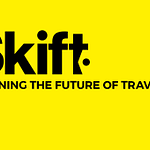Hi,
Welcome to Remotely Inclined, a newsletter about remote work and remote entrepreneurship. If you’d like to sign up, you can do so here. Or just read on…
Melissa Kargiannakis was named one of the most powerful women in Canada. Her AI company Skritswap helps people simplify their content and make complicated contracts understandable. She’s also on a mission to leverage remote work as a way to bring great jobs to non-urban centres, a goal she is well on path toward with Skritswap.
In our conversation, Melissa shared how she plans her day, the two kinds of meetings she uses to run her organization efficiently, her advice for new entrepreneurs, and why she feels remote work is fundamentally a feminist choice.
Running a remote team efficiently
→ Melissa uses two meeting frameworks to keep her entire business under four hours of meetings per week.
→ On Tuesdays, the team writes out their blockers, highlights, lowlights, and next steps, and the team discusses blockers and next steps so they can share ideas. On Thursdays, Melissa does ‘compass calibration’ meetings to reiterate overall company strategy and make sure everyone is on the same page with all sub-categories like marketing or sales.
→ The company created a virtual water cooler using Slack, with a channel called Humans of Skritswap. The channel is explicitly to share non-work, human experience things like cultural celebrations or birthdays, giving everyone a glimpse into their coworkers’ lives.
Advice for remote entrepreneurs
→ If you’re just starting your remote journey, make sure you identify your values, schedule everything, and over-communicate.
→ If you don’t schedule everything, it’s easy to get lost in the inertia of being at home or working remotely.
→ Culture, values, and communication have to be even more explicit than in an office.
Remote work is a feminist choice
→ Melissa believes strongly that remote work is a feminist choice. She defines feminism as the search for equality of all people, which is something that remote work empowers.
→ Remote work allows people to feel the entire range of human experiences and avoid prejudices that may arise in an office.
→ The Skritswap team has particularly seen this when it comes to working parents and caregivers, since remote work gives them the flexibility to balance a job and caregiving.
The final word
As Desmond Tutu said: If you are neutral in situations of injustice, you have chosen the side of the oppressor.
“Take action today and donate to each of these organizations in memory of people lost to racist violence”

Remotely Inclined Chats with Melissa Kargiannakis
Transcript edited for brevity and clarity.
Stefan: Welcome, Melissa! Can you share what you’re working on with Skritswap?
Melissa: Absolutely. My company takes complicated information and makes it more clear. We simplify the world’s information because I think you should be able to quickly read and understand mortgage or tax laws, or any complicated agreement or document you’ll sign across your lifetime.
I’ve grown the company to the top 20 most innovative companies in Canada, and I was ranked as one of the top 100 most powerful women in Canada. I also sit on a few relevant boards and I’m passionate about rebalancing power in society, which is what I believe I can do with this company.
Can you talk about your mission to build a fully remote company out of a small city?
I wanted to build a globally competitive company out of Sault Saint Marie, my hometown. This was back in 2015 / 2016, but I was thinking about it and saying that there are tools. We can be totally remote and I wanted to diversify the economy in non-urban centres and provide more high paying jobs in rural areas, but also operate remotely and still capture talent from other places.
I talked about providing good jobs in rural areas in Remote Work Can Heal America. But you didn’t quite get to build in Sault Saint Marie. What happened?
What ended up happening is I have some talent in Sault Saint Marie, and a lot of our technology was developed in Sudbury, Ontario. But I wanted to digitize the whole economy. And when I spoke to the university I realized the courses they were teaching didn’t include Amazon or Google cloud - or any of those services. It’s hard to cultivate talent in a particular way for technology companies in a small town that’s largely focused on a steel mill.
I’m still hopeful though. I have dreams of building a huge campus there and look forward to that day as the company grows.
Did you always want to be remote, or was it a pivot?
Always wanted to have some remote. I always knew we would be incorporating local folks, but also recognized that talent is in all sorts of different places. One of our team members is based in Vancouver, for example, and she’s one of the best plain language experts in the world. So we figured out a schedule that works.
A lot of entrepreneurs understand the benefits of remote, but how do you source remote talent?
Embedding yourself in the communities. For example, plain language. It’s a very specific community - there are roughly 300 worldwide practitioners that make up the best. So I embedded myself in that community by travelling to their conferences and such (since remote works best when you have that mix of in-person). I also joined the board of directors for one of the three governing bodies for plain language - thankfully I was elected by the peer group. We also hire our contractors from the community.
Can you talk more about the in-person mix that comes with remote work?
We chose to be remote first. I learned about these in Andreas Klinger’s guide on managing remote teams. There is:
Remote first
Fully distributed
Some remote, some in office
Satellite teams
Remote first was basically fully distributed, but having a non-critical mass office where people can go one to three times a week. Then we just got diligent about meeting and flying the team together 1-2 times per year (as we grow, we’ll just do quarterly). I’ll bring people together, meet in person, build those relationships, and continue to foster team cohesion.
How do you foster team and social cohesion remotely?
I’ll share two examples:
I wrote about the first one in my blog post on how to run a remote team. We have less than four hours a week of meetings as a team. That’s critical because people need time to actually do their work, which is a concept you can read more about in It Doesn’t Have to Be Crazy at Work by the founders of Basecamp.
One of the structures we use is on Tuesdays and Thursdays, for 7-10 minutes.
On Tuesdays, everyone will post on Slack in advance of the meeting:
Blockers
Highlights
Lowlights
Working on next
We verbally only go through blockers and working on next because that’s key for people to have different ideas and share them.
On Thursdays, I do what I call compass calibration. I make sure we’re all on the same page with each area of the company. This allows for repetition consistency for every Thursday. I walk through the overall company strategy then each sub-component like marketing, sales, customer success, and product development.
Then we have a Slack channel: Humans of Skritswap. It’s essentially our water cooler. It’s not in general or random. We post all kinds of things - cultural celebrations, weddings, going snowboarding, home crafts, and cooking. That’s where we see each other as humans.
How do you plan your day?
I like to start my days early, usually working by 7:30 am. But before that I get up and meditate before I leave my bed. It’s something I picked up from my boyfriend but it has driven a discipline that forces me to calm myself first thing in the morning. Then I’ll grab a tea and have breakfast. I usually try to go to a run as well, whether before my 7:30 am meetings or after 10 am.
Then I usually do deep work in the mornings. The only meetings I’ll take will be sales because those drive the business.
My internal meetings start with the team around noon or 1 pm, after a lunch break. Then I do all my meetings in the afternoon as much as possible, even trying to put sales and investor meetings from 1-5 pm.
You said that remote work is a feminist choice. Can you explain more about that?
Yes. Feminist choices are all about the equality of all people. It’s allowing people to have the full range of what are considered both masculine and feminine traits. So for me, remote work is a feminist choice because it empowers people to be people and have the full range of human experience.
When I step away in the afternoon and tell my team I’m doing that, it gives them permission to do the same thing. It’s a feminist choice that also empowers families and facilitates a diverse team. It helps women in particular who often carry the caregiving burden at home. It helps them overcome barriers.
We have two employees on our team with young families. And both the one father and one mother on my team have said having the flexibility with remote work has been critical to their ability to succeed in this job and still be engaged and present for their families and children. They talked about having the flexibility to see a school play or a child’s oral exam and be present and engaged. But then still get work done.
It starts from a values perspective. Remote work isn’t just a format of having a building or not. Your company’s success is based on results, not butts in seats or hours in the day. So remote work anchors your work around results.
With results as a core value, it means it doesn’t matter to you as much what time of day your staff is doing certain things as long as there’s some known overlap where everyone’s available.
I think it takes a lot of pressure off people. You’d think it would add more because it’s all about if the results are in. But I think it takes the pressure off because all you have to check is if you did your job - then go be a human.
What would be your advice for a remote entrepreneur just starting out?
Three things:
Have your values and build culture
Schedule everything
Over-communicate
A lot of people think culture just happens. It doesn’t. You have to concentrate and co-create it with your team.
If you’re not a planner or scheduler, you will now become one. Your calendar is your best friend. Put in time for everything: meditation, working out, internal meetings, work blocks, etc.
And then you have to over communicate. If you think it’s excessive to send a voice note on Slack and a bullet list, it’s not - it’s just the right amount.
Amazing, thank you for your insights!
You can get in touch with Melissa on Twitter.















Share this post